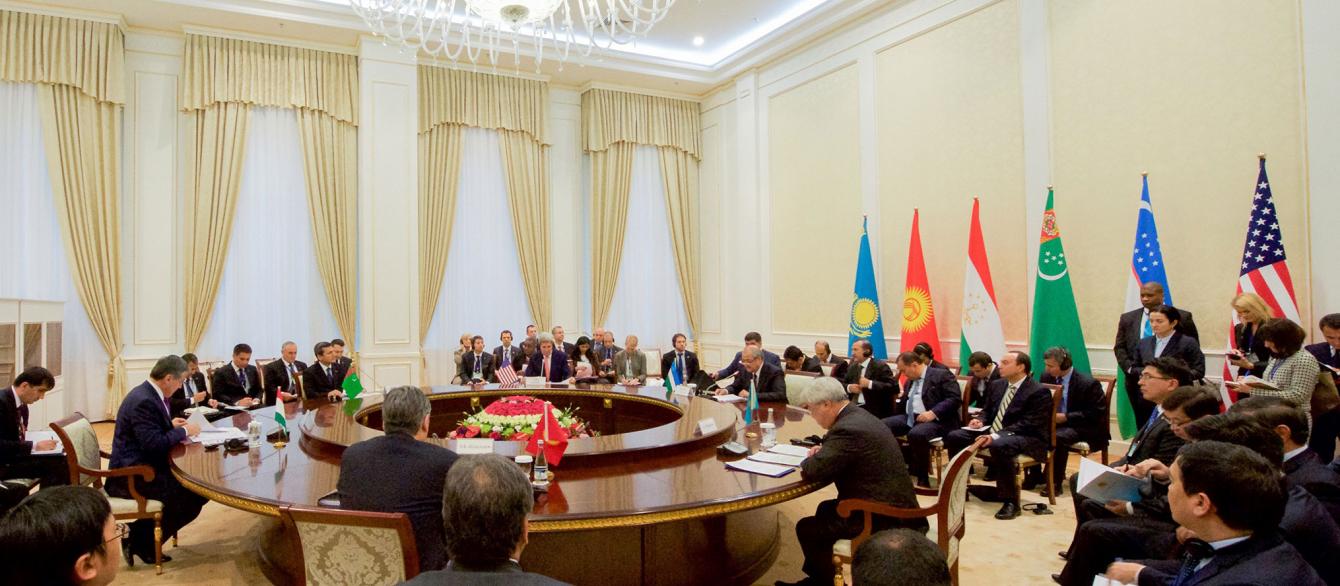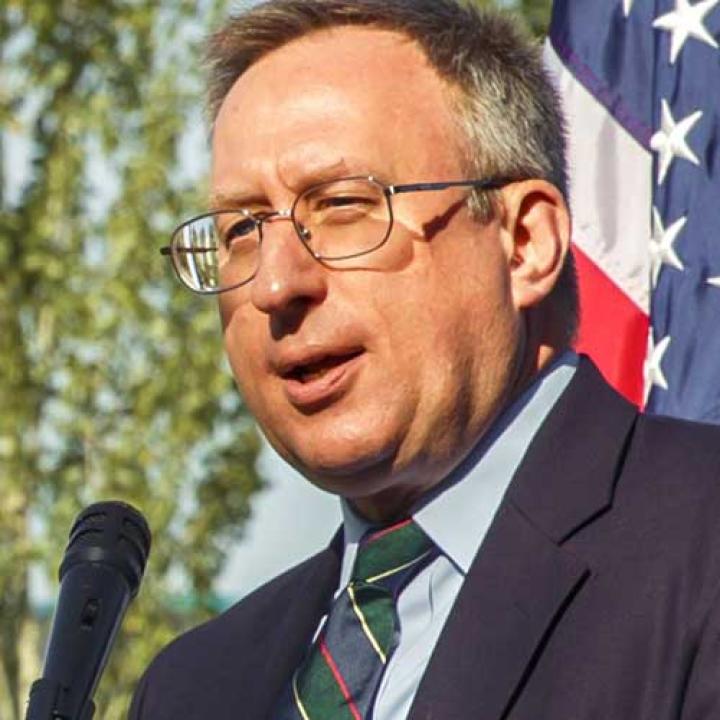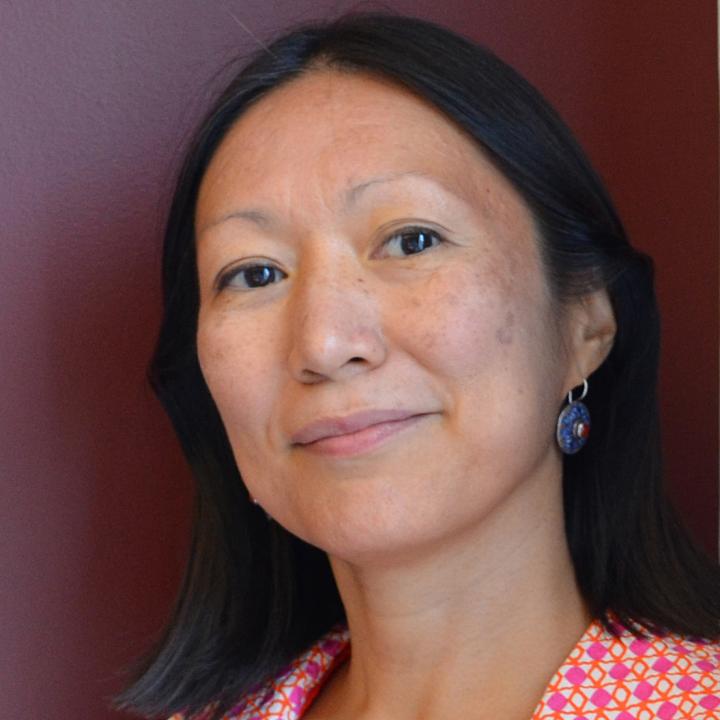The United States made an important contribution to the independence of Central Asian states—perhaps the largest of all the powers seriously involved in the affairs of the region. Thirty years later, both the United States and the region face new challenges. President Joseph Biden's emerging foreign policy team has begun to shape its agenda.
Nargis Kassenova (Senior Fellow, Program on Central Asia) spoke with Ambassador George Krol, a veteran of U.S. foreign policy in the post-Soviet space, about what the Biden administration's foreign policy agenda will mean for the countries of Central Asia.
The Biden administration has been shaping its foreign policy team and formulating priorities. What do we know, or can we infer, with regard to U.S. policy toward Central Asia? Let’s start with the big picture: U.S. foreign policy priorities, as outlined by Secretary of State Antony Blinken.
Firstly, as in past U.S. administrations, I do not think the Biden administration will make Central Asia a major foreign policy priority, nor do I foresee dramatic changes from current U.S. policy in the region. Secretary Blinken indicated the Biden administration’s major foreign policy efforts will be to restore America’s partnership with allies, deal with China as America’s major competitor, and address global climate change. The latter two efforts may have some relevance for Central Asia. The Biden administration may be less welcoming of China’s activities, like the Belt and Road Initiative, than the Obama administration had been, and perhaps less supportive of developing hydrocarbon resources in Central Asia. Secretary Blinken also stressed that the Biden administration would place human rights and values at the center of its foreign policies, as well as seek to make those policies more relevant to and supportive of the American middle class and the U.S. economy. But I do not think this will portend major changes in American relations with Central Asia, other than to continue, rather than expand, efforts to encourage Central Asian countries to develop rule of law and democracy, and respect the human rights of their citizens.
What do the foreign policy team nominations tell us?
Although Secretary Blinken and his senior team at the State Department—as well as National Security Advisor Jake Sullivan and his senior team—are more experienced dealing with European allies, the administration seems to be bringing on board career diplomats and individuals with deep regional expertise to help restore partnerships and reactivate traditional American diplomacy in other regions of the world such as the Middle East, Asia, etc. I suspect whoever becomes Assistant Secretary of State for South and Central Asian Affairs will, like their predecessors, probably focus more on South Asia than Central Asia. At the National Security Council, responsibility for Central Asian affairs is no longer combined with South Asian affairs, but is again combined with Russian affairs as it was in the Obama administration. Still, I doubt this will alter the U.S. approach to Central Asia, which has more or less remained the same over the last 30 years. That policy will probably largely follow the one Secretary Blinken unveiled in his 2015 remarks at Brookings when he was Deputy Secretary of State, although I suspect the Biden administration, like all its predecessors, will undertake a review of policies toward all regions of the world, including Central Asia. But I doubt the review will result in anything more than a repackaging, tweaking, and reordering of the existing long-standing policies toward Central Asia.
How much continuity or change in the policy approaches and instruments can we expect?
Unlike the previous administration, the new administration asserts it will seek to approach world issues by leading partnerships, rather than acting as the lone superpower. I suspect this will mean going back to consulting more with allies and seeking partners as well as conducting foreign policy through traditional diplomatic exchanges rather than by Twitter or phone calls and meetings without bureaucratic preparation and participation. The previous president did not trust the professional foreign policy bureaucracy and it did not trust him. Policymaking is going back to its traditional form and substance before President Trump and will probably sound less bombastic and confrontational, except perhaps with Russia and China.
It seems the Biden administration, like previous administrations, will continue to rely on sanctions as a key policy instrument, regardless of their actual effectiveness in changing behaviors of other states and state actors.
Importantly, the policy makers in the Biden administration, including career diplomats, deeply believe in the primacy, exceptionalism, and indispensability of America in the world, and they think the rest of the world wants and needs American leadership. Not leading, they believe, would be irresponsible and detrimental to America’s own interests. I am not so sure the rest of the world wants American leadership as America has practiced it in the past, even before the Trump administration. They want American partnership. With this ingrained mindset of American primacy, it will be interesting to see whether the Biden administration will demonstrate true partnership in practice rather than rhetorically. Will they be willing to devise and adjust policies based on the advice and interests of partners, rather than taking an uncompromising maximalist approach to both allies and competitors?
It also seems the Biden administration, like previous administrations, will continue to rely on sanctions as a key policy instrument regardless of their actual effectiveness in changing behaviors of other states and state actors. Sanctions are often politically expedient, but their effectiveness is debatable. As for the structure of the Biden administration’s formal relations with Central Asia, I would expect the administration to retain the C5+1 format of annual ministerial-level meetings. I doubt we will see a dramatic expansion of high-level American engagement in the region, which Washington will probably continue to consider largely peripheral to its interests, although they will not say so publicly.
Do we see any changes in the way Central Asia is framed in that big picture U.S. foreign policy?
As I just noted, U.S. big picture policy makers generally treat Central Asia as peripheral to American policies toward priorities like stabilizing Afghanistan and countering perceived Russian (and now Chinese) efforts to dominate their neighborhoods, as well as in the general effort to promote democracy, human rights, and rule of law globally. I do not see that configuration changing substantially in the Biden administration.
Since the beginning of independence, the United States has been investing in connecting the region to Europe and the Euro-Atlantic community. What is happening in this regard, and what can we expect?
Previous U.S. administrations have tried to encourage and create greater interconnectivity among the Central Asian states themselves and with the outside world—less toward Europe and the United States, more toward Afghanistan, South Asia, and directly across the Caspian. There has also been a subtext of encouraging Central Asian states to diversify their connections to enhance their independence from overwhelming Russian influence. The U.S. has pursued the acronym soup of TIFA, TAPI, CASA 1000, NSR, and CAREC all toward these ends.Trade and Investment Framework Agreement (TIFA), Turkmenistan-Afghanistan-Pakistan-India gas pipeline (TAPI), Central Asia–South Asia power transmission project (CASA 1000), New Silk Road (NSR), Central Asia Regional Economic Cooperation (CAREC) There has been some movement and agreements signed, but frankly none of these schemes have been realized. I expect the Biden administration will continue to push for this interconnectivity and these projects politically and with partners, but probably without substantial direct financial support. The Central Asian states give rhetorical support to interconnectivity, and it seems Uzbekistan is making a major push now to lead the effort, but the countries themselves still have not eliminated major barriers among themselves. The United States' relaxing tensions with Iran could accelerate the establishment of connections between Central Asia to Iran and via Iranian ports to the rest of the world. As I mentioned earlier, the Biden administration will probably be less supportive of China’s Belt and Road initiative and will encourage Central Asia to diversify their connections without coming under Chinese domination, similar to the approach to thwart Russian domination.
The Central Asian countries' biggest constraint seems to be government unwillingness to ease up oligarchic control over the economy and allow entrepreneurs and markets more freedom to operate.
You’ve watched closely how the region of Central Asia has developed and transformed over three decades of independence. In your view, how does Central Asia compare to other regions in the former Soviet Union? In what areas could it develop its potential, and in what areas, not so much?
Compared to Russia, Ukraine, Belarus, and the Caucasus over the last 30 years, Central Asia has changed less economically and politically. The region has relatively abundant resources and a growing population base, but the ruling leaderships have shown little willingness in practice to change their essentially protectionist, rent-seeking policies and allow private entrepreneurs and competitive markets to flourish. Small and medium business development has great potential to expand the economies and employment opportunities, especially in agriculture, where there is a potentially large market for Central Asian products in China, South Asia, and the Gulf states, as well as Russia and Europe. But the biggest constraint seems to be government unwillingness to ease up oligarchic control over the economy and allow entrepreneurs and markets more freedom to operate. Even in Kazakhstan, whose leaders profess rhetorical adherence to market principles, there is still too much government control over economic decisions, reflecting the continuing strong imprint of Soviet economic practices and mindsets. Politically, the Central Asian states have also changed less compared to other former Soviet states that have allowed greater, albeit limited, scope for pluralism and relatively freer expression for the public. Within Central Asia, Kazakhstan, Kyrgyzstan, and now Uzbekistan have permitted wider scope for expression, but not to the extent of allowing challenges to the existing leadership and state structures.
Given your experience serving as U.S. ambassador to Uzbekistan and Kazakhstan, the two largest republics of Central Asia and those most responsible for the well-being and connectedness of the region, what would be your advice regarding the best way forward?
It seems that both Uzbekistan and Kazakhstan are working together to develop greater connections and collaboration, first between themselves in many spheres such as trade, tourism, migrant workers, and efforts to address common security threats. I would expect the next step over time would be to expand this dynamic to include the other bordering Central Asian states. None of the states want to be dominated or controlled by their neighbors, although they may see the benefits to reducing trade barriers and reviving transport, people to people, and other links. I hesitate to use the word "integration" because for many Central Asians, that terminology conjures up negative attitudes toward the region’s Soviet past. The states themselves are diverse in their leaderships, economies, and politics, and it will take time and patience for them to develop true regional cooperation. Steps such as allowing freer travel by citizens across borders and encouraging greater contacts among people and across the spectrum of societies could help build regional ties and perhaps joint policies.
What is your take on the development of the various corridors connecting Central Asia with other regions?
So far the transportation corridors have mostly facilitated the transit of goods from countries such as China through Central Asia to markets outside of Central Asia. The energy corridors bring hydrocarbon resources out of Central Asia to markets, while electrical energy generated in Central Asia is now reaching customers outside of Central Asia. The Central Asian countries are trying to diversify not only their trade corridors but also their economies to produce more goods and not just raw materials to export. Diversified fresh agricultural products have potentially lucrative markets in the Gulf region and China, and not just to Russia as in the past. Lowering the costs and increasing the speed of transportation links will be key to making Central Asian economies and goods more competitive in the world market and more attractive to investors.
It will be hard—maybe impossible—to change the mindset of moral, military, and political supremacy that governs most U.S. foreign policy makers and diplomats alike. But now is as good a time as any to start raising critical questions.
U.S. foreign policy has a strong normative aspect, and the Biden administration seems to take democracy and human rights promotion seriously. Central Asian states do not have a particularly good record in this department, but they also do not fully follow the lead of their big authoritarian neighbors. Central Asians are interested in good relations and cooperation with the West. Under these circumstances, what normative agenda is feasible in the region?
The United States and the EU countries have long made normative issues—such as respect for human rights, democratic political institutions, and rule of impartial law—key elements of their foreign policy in Central Asia, at least rhetorically. The Biden administration has asserted these issues will be at the heart of American foreign policy. The Central Asian governments themselves also assert they share these values and aspire to implement them. But as we see even in America, it is hard to put normative values into actual practice. It is equally difficult to put them into practice in foreign policy, where they often conflict with other pressing interests. Striving to achieve aspirational normative goals has been the long, checkered, and continuing story of all societies, including the United States. There is no single project or magic approach to achieve these goals. It also depends largely, and perhaps ultimately, on the internal social, cultural, political, economic, and personality dynamics in each society, not so much on outside “experts,” although outside influences do have effects. This pertains to Central Asian countries just as it pertains to the United States. It is important to appreciate the complex dynamics in each country. The societies in Central Asia are changing, but it is hard to say how these changes will affect the normative aspects in them. Consistent, patient encouragement of respect for basic human rights is important, but I think there needs to be a thorough, realistic reexamination of the tools and policies outside states tend to use to encourage normative changes in another society.
What opportunities and challenges need more attention from U.S. policy makers, from your perspective?
As I intimated in previous answers, the key challenge and opportunity facing U.S. policy makers is to reexamine and perhaps think of and deal with the world and America’s role in it in a new way. This will demand more than rhetorical flourishes and repackaged speeches, but some hard practical decisions based on realistic appraisals of the limits and potential of American power and influence in various areas of the world. It will be hard and maybe impossible to change the mindset, the operating system, if you will, of moral, military, and political supremacy that governs most U.S. foreign policy makers and diplomats alike, especially as they usually have little time for such serious reflections and adjustments when they are reacting to the world’s daily and long-standing crises and problems. But now is as good a time as any to start raising more often in policy making sessions critical questions about assumptions, and being honest about priorities, capabilities, and consequences. After 36 years as a professional diplomat, I must admit I have more questions than answers.
This interview was published in Russian on March 15, 2021, by Vlast.kz: https://vlast.kz/politika/44173-kakoj-budet-politika-ssa-v-centralnoj-azii-pri-administracii-bajdena.html.








